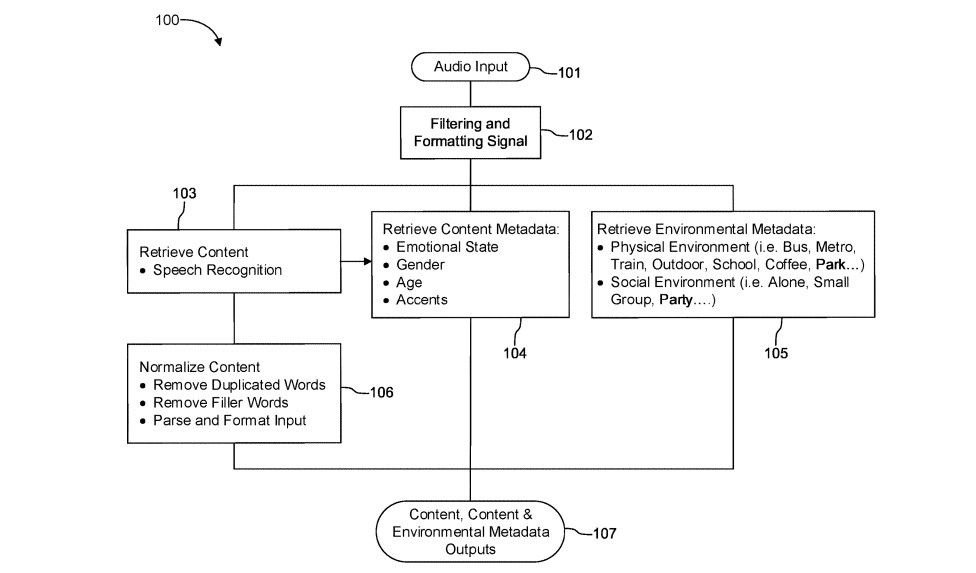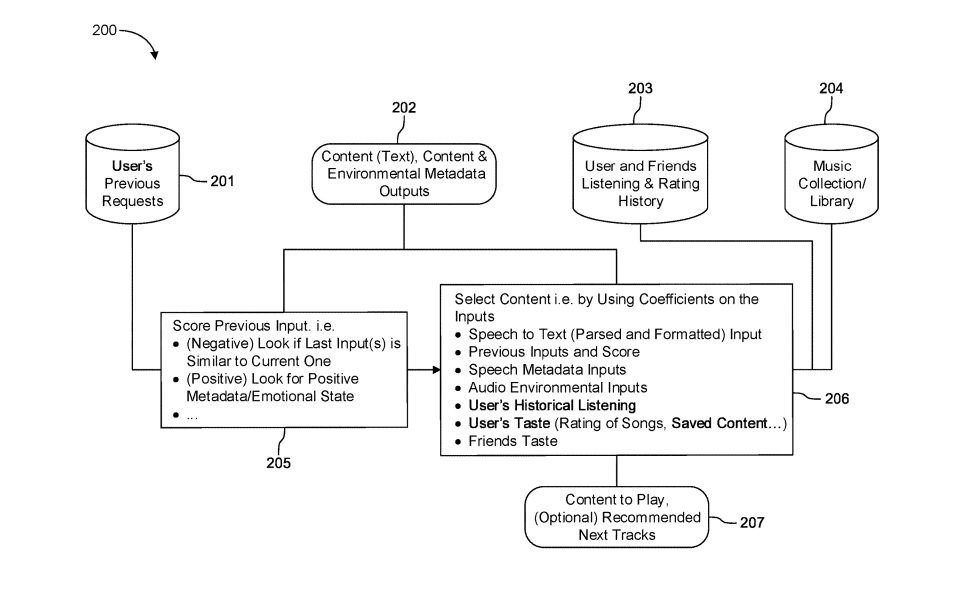Spotify is finalizing details for the use of a new technology that would allow it to analyze users’ voice queries to suggest songs or music genres based on their mood, genre and even accent. This is a technology patented by the streaming platform with which they aim to perform an in-depth analysis of the users’ environment to provide them a much better experience.
The developers of the platform consider that the current approach to determining the musical tastes and interests of its users is not enough, so it is necessary to increase the responsiveness of this service. Patent documents mention that “Spotify will be able to play music that reflects their true mood and even their social environment, that is, if the user is in a small group, in their work environment or at a party.
Using speech recognition, the platform will try to determine additional details about its users including age, gender and what in their patent documents they call “contextual details”, which refer to voice intonation, accent and rhythm, thus indicating whether the user is happy, angry or sad. Spotify plans to use all this information in combination with the metrics collected by the app (music history, favorite artists, etc.) to significantly increase the effectiveness of its recommendations.
This is one of the many changes that the music platform plans to implement in the short term. A few months ago, Spotify patented a karaoke-like feature that allows users to overlay any music track with their own voices. Developers also obtained permission to implement a media selection engine based on user movements.
However, probably the most important patent registered by Spotify will allow it to define some personality traits of its users to recommend music and podcasts according to the way each individual is, beyond just relying on their activity history on the platform.
Many privacy specialists have already raised their voices, considering that implementing these updates would reach a highly intrusive level, although the streaming platform itself is trying to set some limits: “We recognize as valid all the concerns that these projects may cause. We will try to address any potential misuses this technology may have prior to its massive release,” a Spotify security report mentions.
An approximate date for the implementation of this technology is still unknown, although it is already known that the project is in the testing phase, so its launch may not take too long.
He is a cyber security and malware researcher. He studied Computer Science and started working as a cyber security analyst in 2006. He is actively working as an cyber security investigator. He also worked for different security companies. His everyday job includes researching about new cyber security incidents. Also he has deep level of knowledge in enterprise security implementation.


